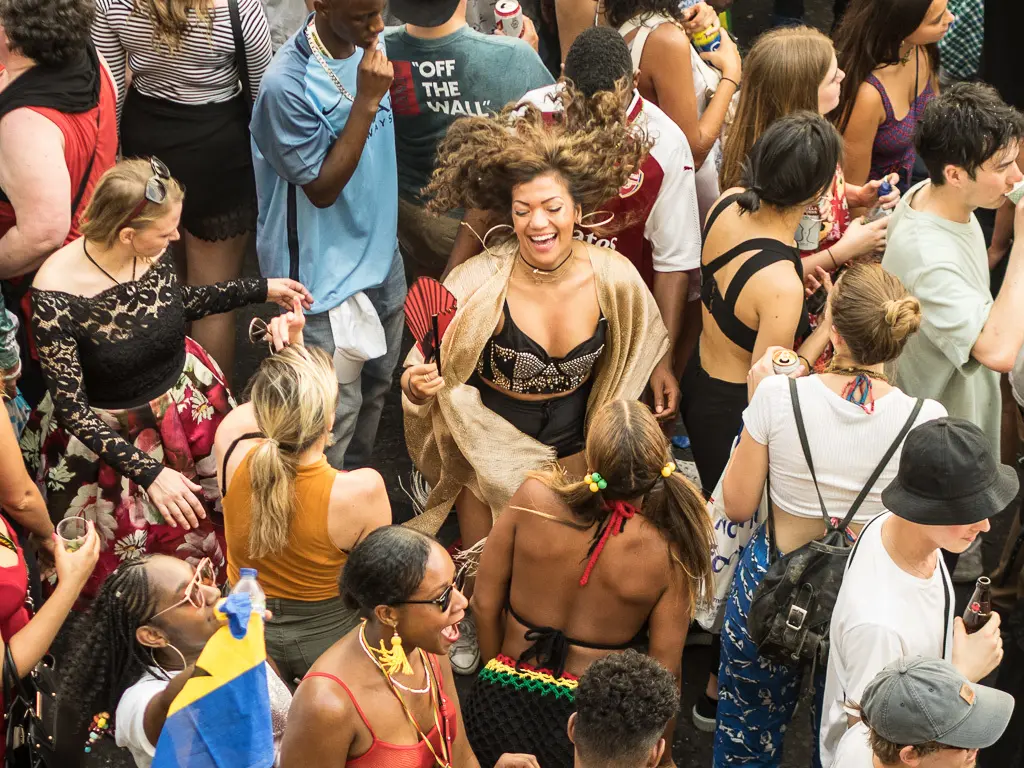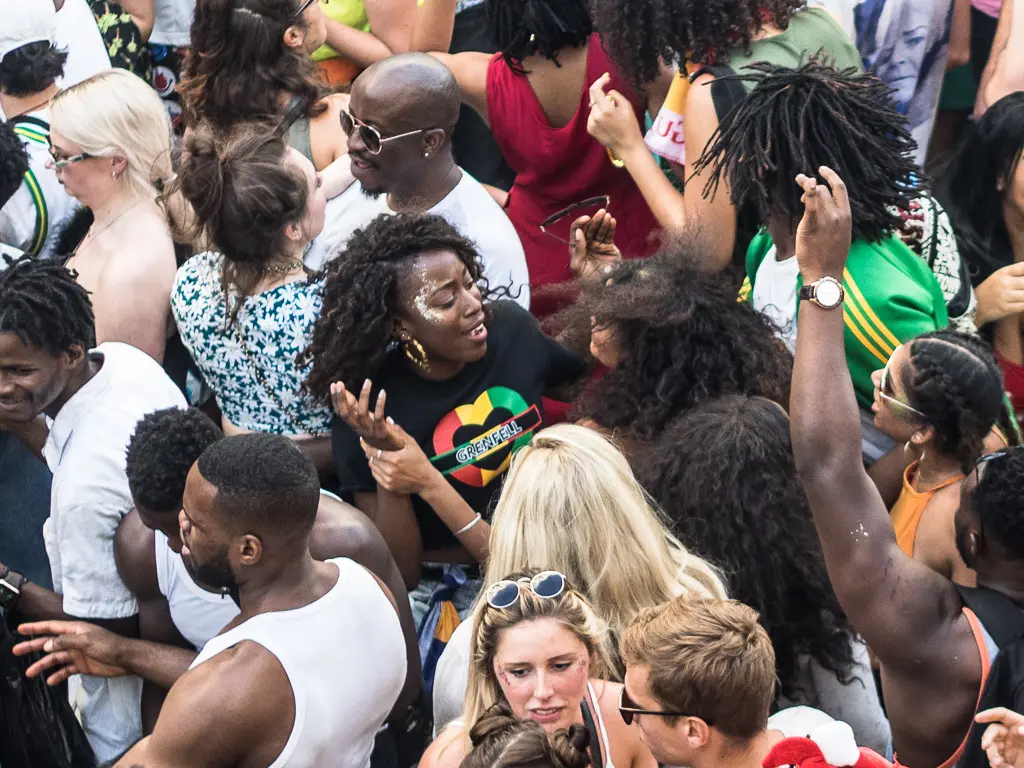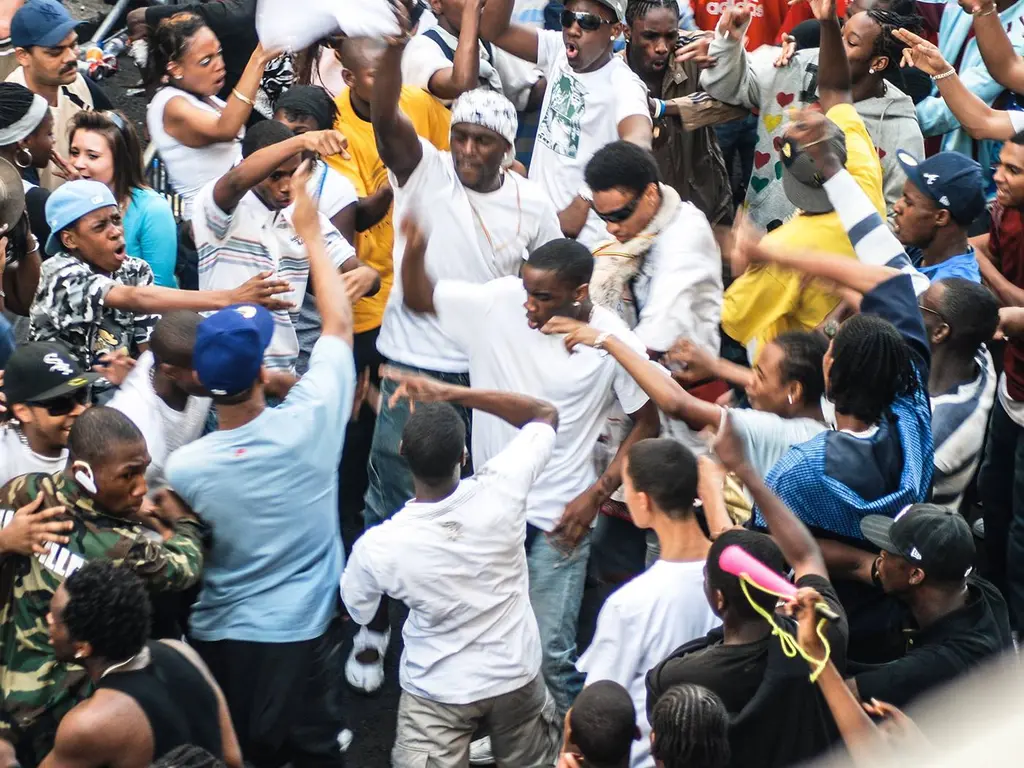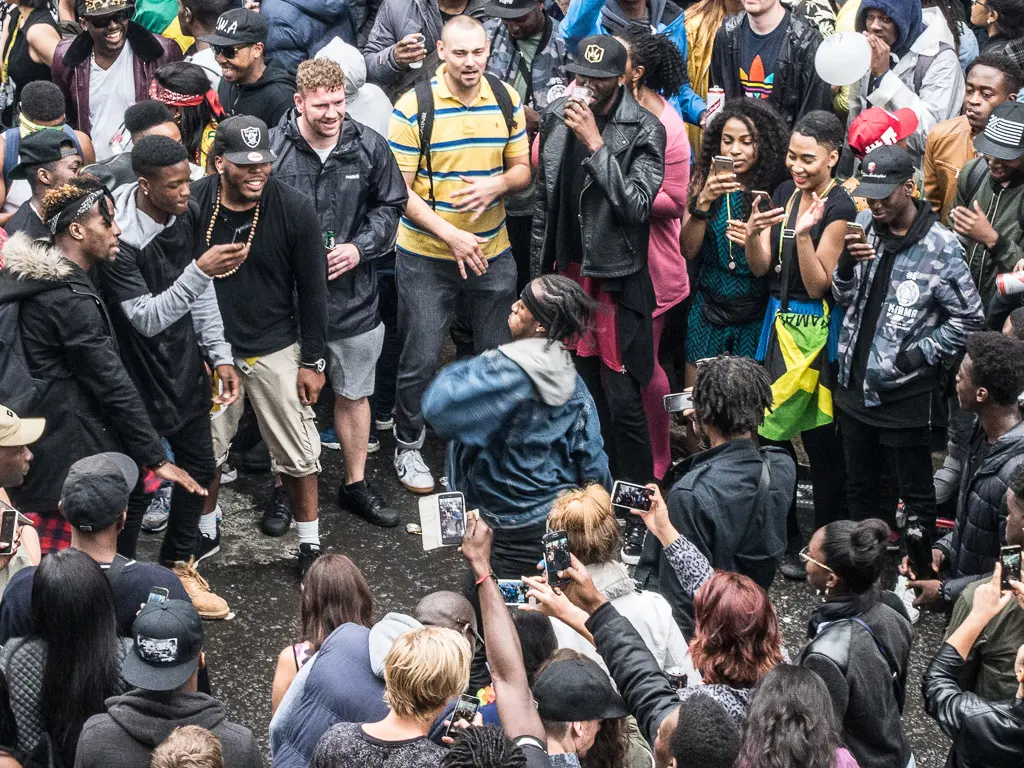An oral history of Notting Hill Carnival’s Disya Jeneration soundsystem
Artist, organiser and one of the first female DJs to play at Carnival, Linett Kamala talks us through 30 years of the institution that’s hosted Gaika, Mark Ronson, Neneh Cherry and Benji B’s Deviation crew.
Culture
Words: India van Spall
Video: Ben Holman
Photography: Babycakes Romero
London’s Notting Hill Carnival is a celebration for many, but for the likes of educator, artist and organiser Linett Kamala and the rest of the Disya Jeneration soundsystem crew, it means so much more.
It’s their livelihood, 365 days of the year. When the northwest London streets are no longer flooded with crowds of drinkers, dancers and destiny-seekers, Kamala and her carnival committee are behind the scenes keeping the party going.
Carnival is not just a knees-up. Following the 1958 Race Riots between Teddy Boys and Black youths and the racially motivated murder of Kelso Cochrane in 1959, a children’s parade was founded by activist Rhaune Laslett in 1966 as a way to bring the community together and heal racial tensions.
Over the last 50 years, this has transitioned and grown into a beloved annual event that Londoners, and those further afield, look forward to every summer bank holiday. With famous guests flocking to the streets of west London and a DJ line-up that’s previously hosted the likes of Mark Ronson, Neneh Cherry and Benji B’s Deviation crew on the decks, Disya Jeneration soundsystem – located on Powis Terrace – has become the go-to spot for those in the know.
This year, as expected, Notting Hill Carnival has gone virtual and in a bid to stir up a bigger online presence, Kamala has teamed up with Gaika’s Nine Nights to host a digital afterparty. Broadcasting live from Somerset House on 30th August, the URL event will see sets from Flohio, Obongjayar, Elheist and more. So make sure you tune in to bring the party home.
To mark the event, Kamala talks us though the history of Notting Hill, 30 years of Disya Jeneration Soundsystem and the power of music and unity.
How did you first get involved with carnival?
I’m British born with Jamaican heritage. My parents – when they came over from Jamaica as part of what’s now called the Windrush Generation – settled in the Notting Hill, Ladbroke Grove area. That was at the time when the carnival was just in its infancy.
As a small child, like a lot of people, I was brought there. That was my introduction to carnival but, in terms of music, my dad was a musician. That was always in my life … when you become a teenager you want your own type of music. For me, at that time, it was called electro – it wasn’t necessarily known as hip-hop culture. It was quite fresh. I was more of a DJ at that time, there were different roles people had. You were either a graffiti artist, a break dancer, a beat bop, or an MC. For me, I was a DJ.
Rumour has it you were one of the first women to hit the decks at carnival…
The gender thing didn’t occur to me at the time – it was just that can-do attitude. I guess for me, taking music seriously, buying records, that was it. That would have been the mid to early 1980’s, around 1984. That’s how I got into music, and in terms of how I linked into carnival, we’re kind of all from the same area. I’m based in northwest London and [so it] the soundsystem – that’s where we’re all from. A lot of us went to the same schools, they would have been like my older brothers. The sound itself was only formed in 1982 and first started playing at carnival in 1985.
There’s a photograph that someone found of me [DJing], because at the time I guess it was a novelty… There were people coming up, taking pictures, I was on the decks and I had my mate at the time helping as a selector. Not only were we seen as “girls” touching equipment, but people weren’t impressed with what I was doing with the equipment – I was scratching records, which was, like, forbidden. Obviously it’s a rebellion isn’t it – teenagers, that’s what we were doing. Up until that point, people weren’t really mixing records like that, let alone scratching them. You would never draw back a record, are you mad?
Someone was saying, hang on a minute, I think you might have been one of the first girl DJs at carnival. As I said, it wasn’t a thing, it wasn’t about gender, you just had to entertain the crowd.

Linett Kamala as a teen in the '80s
So you actually taught yourself?
Yeah, we would jam. It’s a crew, so we’d jam, source the music, go to record shops, and go early to get the fresh cuts. Temps was the original founding member in 1982 who I worked very closely with and was like a mentor. Over time, you’d just learn.
Did you ever feel like you weren’t taken seriously?
The thing back then with hip-hop culture was that you just had to be good at whatever you did. You kind of had to prove yourself, but with DJing it wasn’t about your looks. And that’s what I really liked about it and that’s where I fit in at the time – I excelled, we could hold the crowd.
Back then we’d go and do other carnivals around the country, it was a new thing. [Disya] Jeneration’s always been the title of the sound, it’s taken from Bob Marley’s Redemption Song, that lyric. We’ve always been pushing forward, challenging the status quo. We do things, we try to be open minded and do things differently and we continue with that.
Even now in 2020 – particularly within soundsystem culture – there’s still a big gender imbalance. Back then, I was just hooked in terms of grabbing that mic and saying to the crowd, “Make some noise!” All these hundreds, thousands of people … I just loved it. Like most people, you’re just bitten by the bug.
What could people expect when they came down to Disya Jeneration soundsystem?
At the time we felt like we were on top of the world. This was the birth of hip-hop culture. I was playing electro and funk – weird sounds, 808 bass. Hearing that on the system was beautiful. Deep funk tunes like Funkin’ For Jamaica, that was the signature tune. I used to play the Thunderbirds countdown from that TV programme, that was my opening for my set. It was just a lot of fun.
Apart from Mastermind and one other, everyone was playing reggae. What we were playing was seen as alien. Who would have known it would have become the big global thing that it is culturally.

Babycakes Romero, Notting Hill Youth Archive

Babycakes Romero, Notting Hill Youth Archive

Babycakes Romero, Notting Hill Youth Archive

Babycakes Romero, Notting Hill Youth Archive
You said you were playing music that other people weren’t. What was the initial reception to that?
It wasn’t cool. Sometimes people would just stand there, but I kept going! I must have been a bit feisty as a 15 or 16-year-old. I just felt it. There were people in the crowd who knew how to dance to it, and back then it would have been a bit intimidating if you couldn’t break dance or body pop, but it wasn’t just that. We mixed it up, we’d play singalong tunes and work the crowd. Over time, by the end of the set people were going mad, but initially when we first started it was like, “Huh? What’s this?” And now look, it’s gone huge!
Who has played with you over the years?
We have streamed across the planet and been the entry point for lots of people. Who’s come in over the years is mad. Neneh Cherry, Gaika, Levi Roots, Lil Silva, Heartless Crew, Mark Ronson etc. Plus we’ve hosted Deviation and Boiler Room.
Shout out to our core Disya Jeneration crew: CarmenLondon, Raker, JammyD, Minus, Steely, MC Charley, plus the founder of Disya, Tempz.
We want whoever’s hot on the street. What’s been amazing is that DJs have had their first break or test on our street. Some of these DJs are giving it their first go and they can warm the crowd up at the beginning and it might flop – that’s fine. Then we have DJs who are used to flying around the world with 50,000 but they still have to learn how to come correct. There’s no guarantee, regardless of experience, whether they can cut our stage.
Where else do you take the soundsystem throughout the year?
So we would do the other carnivals like Birmingham, Luton, but now over time we’ve just focussed solely on Notting Hill. On our street, on Powis Terrace – we used to be on Powis Gardens years ago. It’s a really historical part of the actual footprint of carnival.
Why is carnival so important to you?
It’s about giving back. Some people just rock up and say, “Where’s the party at?” Well first of all, it’s not a party. Yes, it’s a celebration, but for us it’s about our culture and our life, we work hard for this. No one stops to think how this all gets here. This is the challenge of funding our time.
If we look at the history of carnival, it’s always been a challenge because of the way it was formed. It was birthed out of this tragic event and everyone came together to do something. That’s special.





